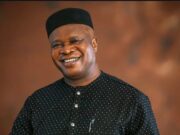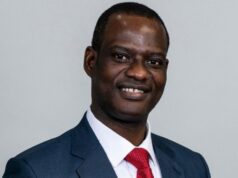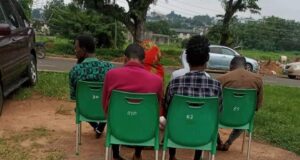The Federal Government has announced that the long-awaited National Youth Conference will take place in February 2025, following several months of delays.
President Bola Tinubu initially proposed the conference during his Independence Day speech, aiming to address critical issues affecting Nigeria’s youth, such as unemployment, education, and political participation.
The conference, which was intended to engage young Nigerians in meaningful dialogue and encourage their involvement in national development, was originally scheduled for much earlier.
However, its postponement has led to frustration among various youth groups, including the Arewa Youth Consultative Forum, Yoruba Youths Council, Ohanaeze Ndigbo Worldwide, and the Ijaw National Congress.
These groups have expressed their disappointment over the lack of progress in organizing the event.
Zaid Ayuba, the National President of the Arewa Youth Consultative Forum, criticized the government’s delay, calling it a sign of neglect and lack of interest in addressing the challenges facing Nigerian youth.
“The President’s announcement should have immediately led to action, but this has not been the case,” he said.
“We remain hopeful, but we urge the government to prioritize the conference in early 2025.”
Similarly, Eric Oluwole, President of the Yoruba Youths Council, expressed frustration over the government’s inaction.
He emphasized that youth inclusion in governance is a critical demand, as young people make up 70% of the country’s population.
He called on the government to act swiftly and ensure that the conference delivers concrete solutions.
Dr. Alex Ogbonnia, spokesperson for Ohanaeze Ndigbo Worldwide, highlighted the importance of the youth conference for the President’s credibility, stating that it would provide valuable insights into the concerns of Nigeria’s youth.
He stressed that the conference should not be delayed further, as it would help address pressing issues such as unemployment and social unrest.
In contrast, Peluola Adewale of the Democratic Socialist Movement criticized the conference as a “diversionary tactic” by the Tinubu administration, arguing that it was an attempt to placate young people amid rising public discontent.
Responding to concerns, Minister of Youth Development, Mr. Ayodele Olawande, confirmed that the event would begin in February 2025, lasting for one month.
The conference will involve extensive grassroots engagement, with three weeks dedicated to interacting with youth at the local level across Nigeria, followed by one week in the Federal Capital Territory (FCT), Abuja, to discuss findings and formulate actionable steps.
Olawande noted that the approach would be different from previous conferences, with a focus on actionable outcomes rather than lengthy discussions.
He revealed that the President had approved the new format, which includes nominating representatives from various ministries and agencies to collaborate with delegates.
The minister emphasized the importance of ensuring the conference leads to real change, mentioning that a task force would be set up to help implement the recommendations.
He also acknowledged that the President had expanded the duration of the conference to a month after reviewing the original proposal.
National Association of Nigerian Students (NANS) President, Lucky Emonefe, also called for urgent action, stressing the need for increased youth participation in government.
He said NANS would demand that at least 50% of public leadership positions be filled by young people, and urged the government to act swiftly to hold the conference as soon as possible.

















